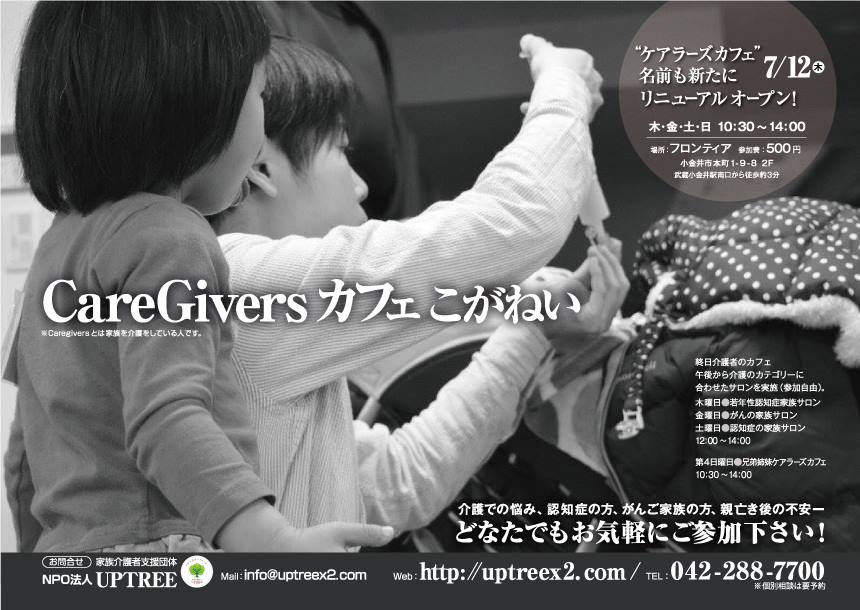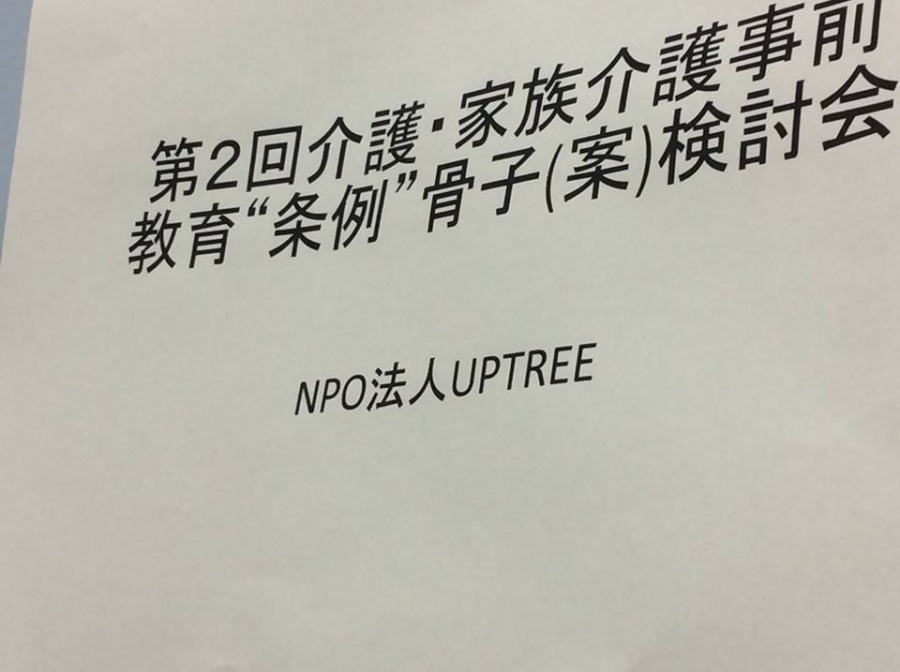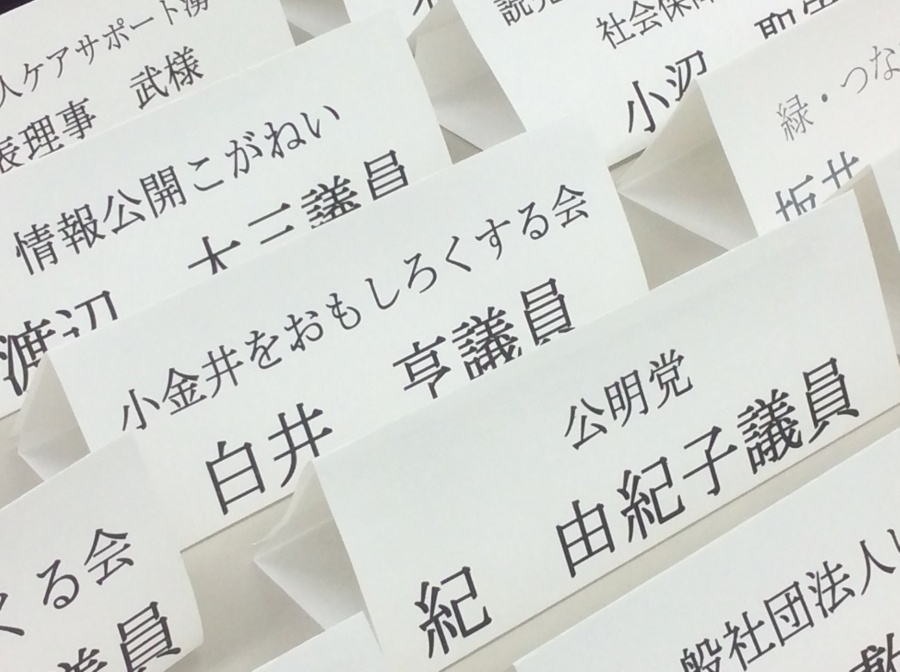Caregivers’ Newsletter No. 6 (Koganei Edition) has been issued!
The topic this time is information on“food” that is beneficial to the caregivers in Koganei City.
Newsletter No. 6 highlights two articles on food in caregiving.
First, we introduce to you the “gastrostomy restaurant” hosted by the Nippon Dental University Tama Clinic for Oral Rehabilitation, first ever of its kind in Japan. The Clinic is located in Higashi-cho, Koganei City.
One of the regrets that we hear from caregivers is that they “wanted to let those they cared for eat with their own mouths”. In some cases, gastrostomy was chosen because of the progression of illnesses; in other cases, three meals a day were not fully given to their mouths because of aspiration pneumonia and avoiding risks from oral intake.
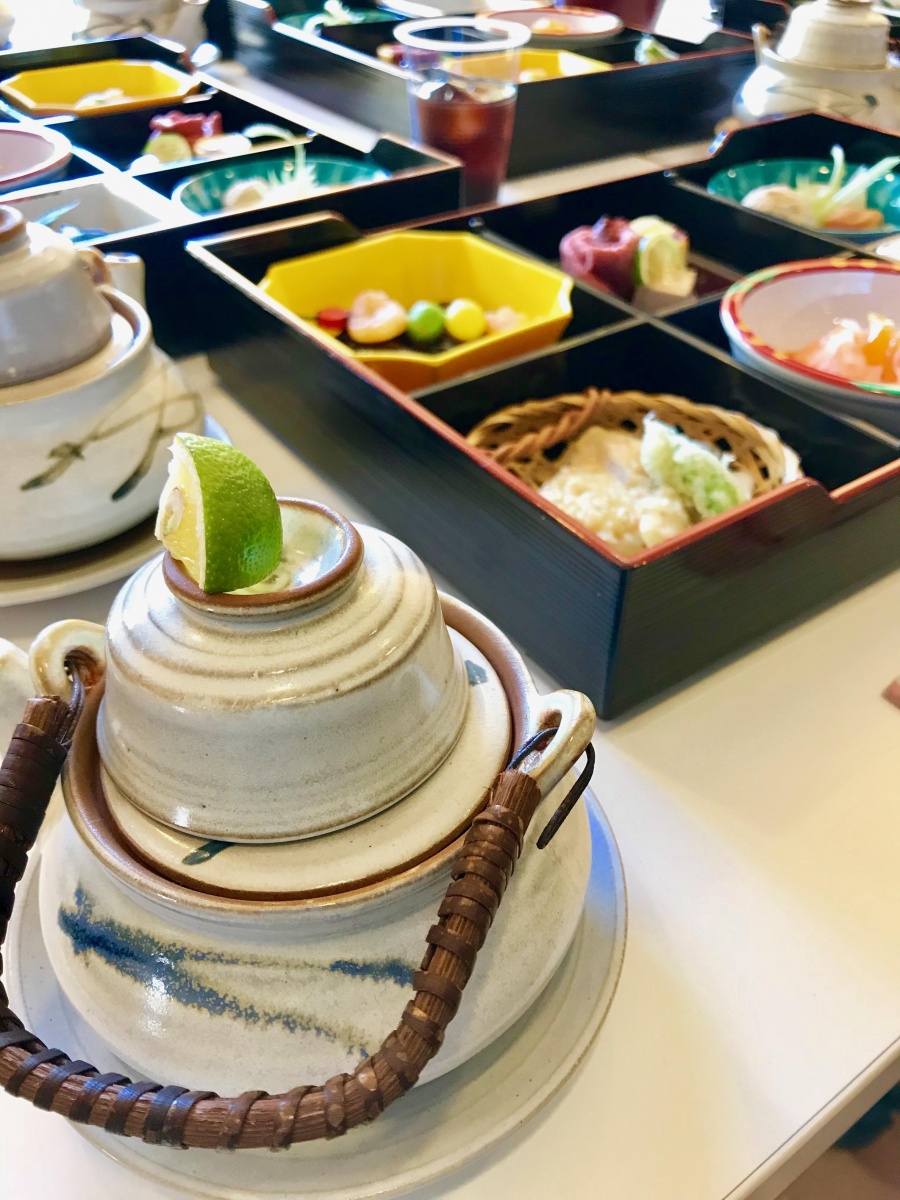
The Nippon Dental University Tama Clinic for Oral Rehabilitation focuses on visiting the nursing facilities and homes for medical care as well as examining oral cancer patients after their operations and looking after children’s eating.

Dr. Kikutani, the director of the Clinic strives to support “enjoying meal as long as possible”. Under his teaching, the students who are the future dentists engage in practical training in their first and fifth years to experience actual communication by visiting patients at home. In order to make it a model nationwide and even worldwide, he is working passionately on medical education.
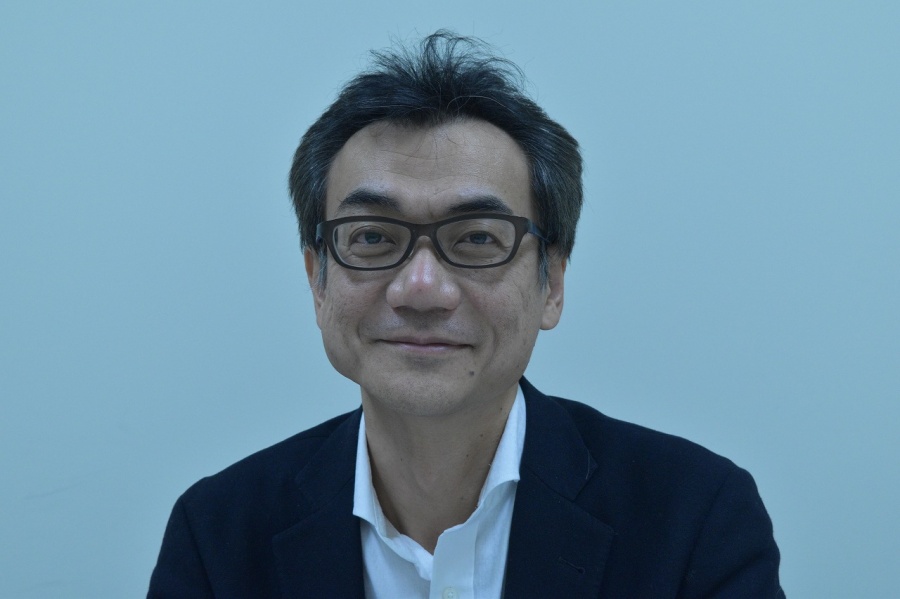
Dr. Kikutani hopes to prepare the ground for local restaurants and cafeterias to be able to offer meals for patients with gastrostomy. He told us that it is most essential for those who are cared and the families who care for them to have the same food “together”.
Starting from Friday, April 13th 2018, “Class for Preparing Easy Nursing Food” will be held monthly to support “eating”.
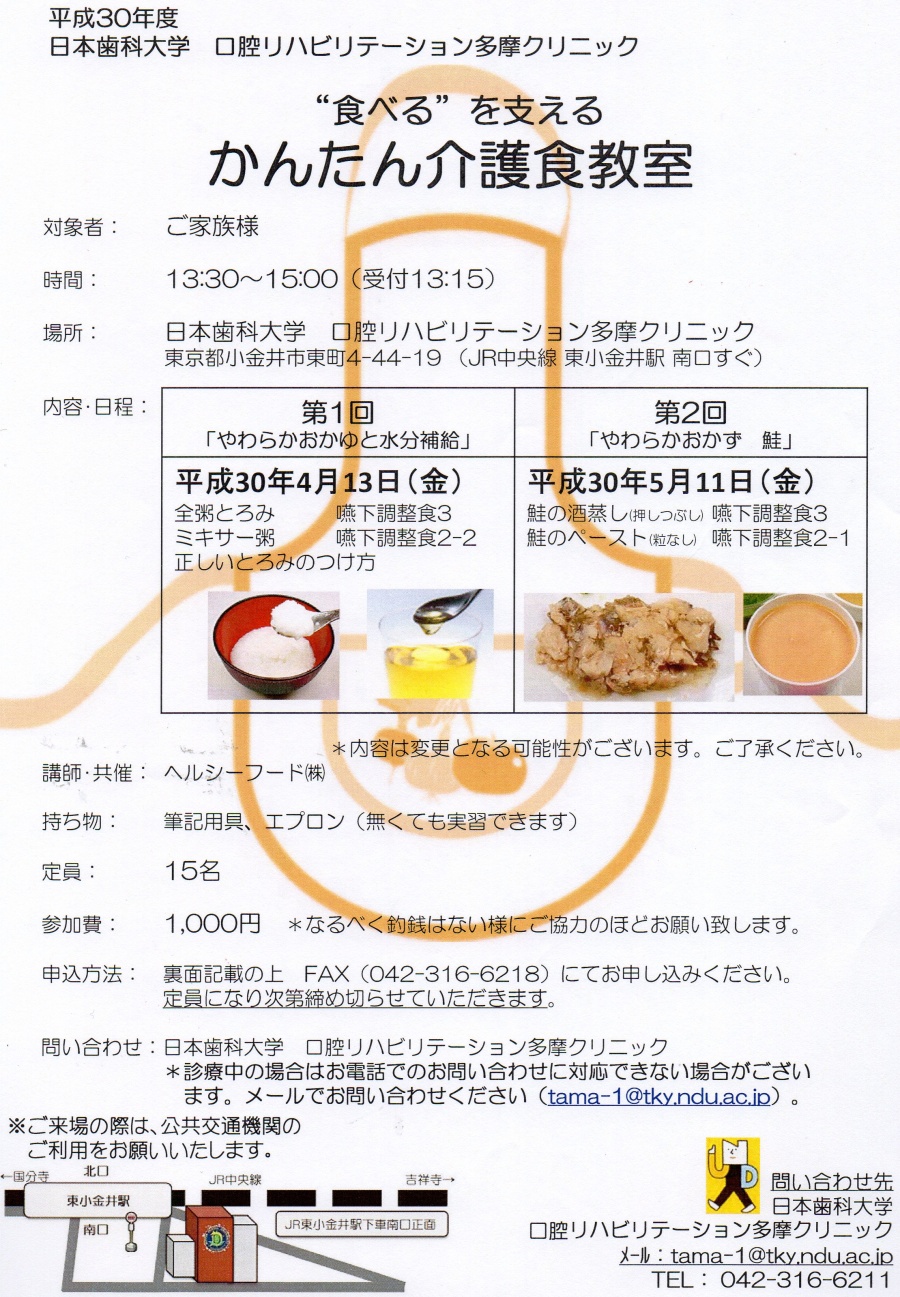
The first class titled “Soft Congee (Rice Porridge) and Liquid Intake” is recommended for those who are or will be taking care of their families at home. Did you know that the clear fluid above the congee rice does not have any nutrition? In this class, you will be able to learn how to prepare congee and how to assist with meals as well as obtaining other useful information on these topics.
Linked to the Tama Clinic’s website, there is a web page named “Support Eating: Search Site for Food Forms for Dysphagia Diet and Nursing Diet”.
While the classification named “Japan Dysphagia Diet 2013” may sound slightly professional, it actually introduces the forms and stages of “nursing meals” in an easy to understand way with pictures. The whole website will surely be useful for nursing care at home.
Changing the topic, the second article on nursing food is about “Life Deli Koganei”, a bento (packed lunch) delivery shop that supports your nursing care in total. Life Deli offers delivery of “mousse-style food” that is still rare in these delivery services.
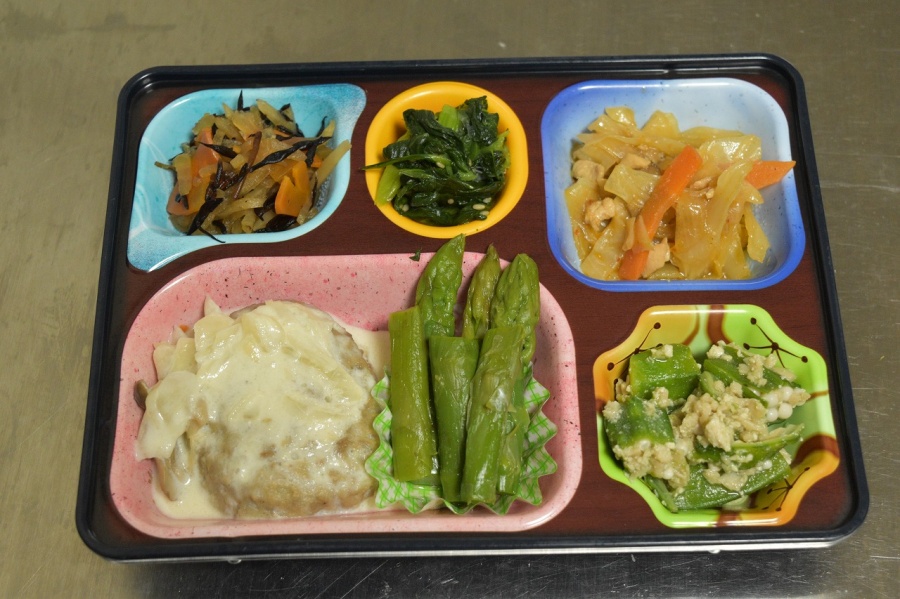
The shop owner Mr. Miyayashiki is also the representative of Ishidue, a general incorporated association that offers one-stop consultation for welfare service to meet various needs such as taxation, law, pension, real estate, ceremonial occasions and entertainment. He is a trustworthy and valuable person.
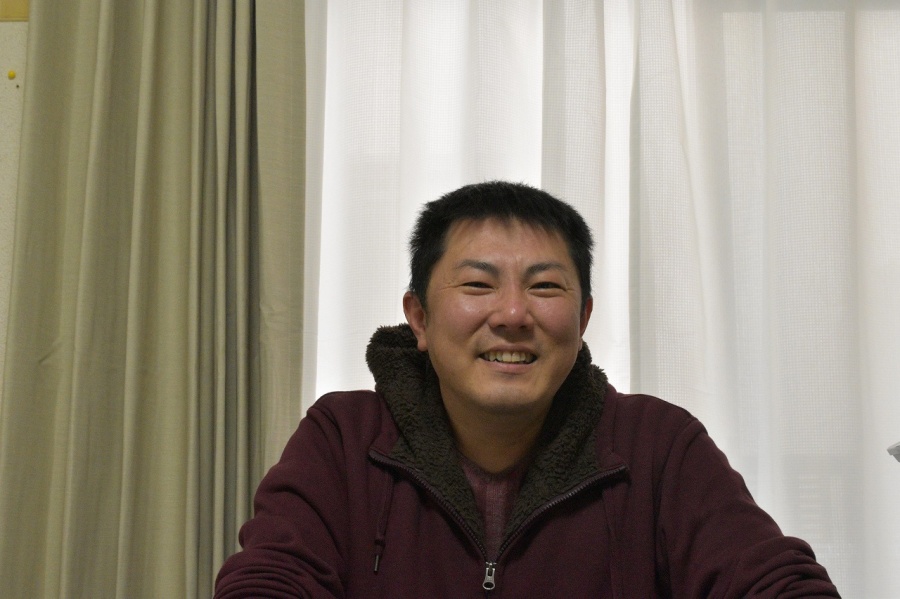
The association name Ishidue has the word “tsue (due)” in it. “Tsue” means a stick. Mr. Miyayashiki wishes to be a strong stick for families who are nursing and put this in the name so as to remember the originating point and the role as a guiding stick. He told us that he founded Ishidue when he felt the inconsistency in the nursing insurance system and wanted to support the families who are caring.
He has been actively assisting employment of those with disabilities. For example, he accompanies a handicapped person to a cleaning job in an apartment and works together. He created this job when he heard from a caregiving family that the parents wanted their child to be able to self-support in the society after they pass away.
Mr. Miyayashiki says, “People with disabilities can handle work carefully and properly. It is just that we figure out good ways for that person to be able to do that job.” He is keen on creating more jobs. He truly is a strong supporter for the caregiving families.
Days In Grief: Feelings for Father

Having one’s family member restrained to a bed is such an unbearable experience for a caregiver. One of our readers shared her emotional turmoil and the sense of guilt she has long kept within herself.
My father had his legs restrained to a bed in the hospital. From his mouth, which was the only free part of his body, he shouted repeatedly, “Call me a taxi because I’m going home!” Even now, I cannot forget how he pleaded. Every time I remember, tears fall from my eyes. I get angry at myself for not having been able to make his earnest wish come true; at the same time, I get angry at the hospital.
It all began with the fracture of femoral neck when he fell down inside the house. My brother living together with him called me and told that Father was taken to a hospital by ambulance, which was quite far from their house.
Three days later he had an operation and a week later he was supposed to start his rehabilitation. However, he did not eat his meals, and tried to get off from his bed. It must have been his desperate appeal.
Because he would not eat, he ended being put on a drip. He would pull it out, so he was restrained. He was freed from the restraint only when the family was seeing him. It was so miserable to see him being tied again when we had to leave.
After a few days, I told the chief nurse that I wanted to let my father be transferred to another hospital. The chief nurse replied harsh and cold, “That is impossible!” I then consulted the care manager, but got another reply that it was not possible. My father, who did not do any rehabilitation, was transferred from the surgery ward to an internal medicine ward, a place for dementia patients.
I was not sure whether the nurses were on patrol there. Two days later, I received a call that my father was in a critical condition. But no one in the family could make it in time. When we arrived at the hospital, Father had already been moved to the hospital morgue in the basement.
I had so many questions to what the doctor and the nurse explained. I made protest in tears, but it did not reach them. In the large elevator that leads to the morgue, I cried out loud. From that moment, I swore I would never come to this area again.
Father had been a stubborn person from long time ago. When I talk about my father, tears still flow from my eyes. This will never ever change.
True Feelings of Caregivers

◇l Do you have someone you can consult when you feel your heart is torn? There might be someone who is feeling the same… The one I care for cannot hold notebooks or pencils anymore. I should have talked more. (Lady in her seventies)
◇l You mustn’t strain yourself in the hospital. You’ll be exhausted. You must find a doctor who would think about your entire life for you. (Lady in her seventies)
◇l My father-in-law would often cough with food and vomit. He was warned not to vomit near the other users of the facility. He might have been coughing because he was given food that he didn’t want to eat. When he moved to another facility, he took a test and it was found out that he still have enough ability to swallow. He was no more given nursing food; he even became able to eat a seafood bowl. Preconception is no good. We must have things checked properly. Thanks to all the checking, my father-in-law is still able to have the joy of eating. (Lady in her forties)
◇l Caregiving is solitude. The stubbornness with which you don’t easily rely on someone might enable you to manage caregiving. I was like that. (Lady in her fifties)
◇l I often visited my aunt who was living alone, a patient of Parkinson’s disease. It was worrisome that she lived on the second floor. When she began to have difficulty walking, I urged her to use a “silver car” (walker for an aged person) but she rejected. However, to my surprise, the next time I visited her, she had already decided to purchase a silver car, advised by her care manager. Maybe her pride didn’t let her do so in front of her niece. (Lady in her sixties)
◇l Seeing me tired out in long-distance caregiving, the doctor in charge of my father summoned my brother who was living together with my father and entrusted the decision of future treatment to him. Thanks to the doctor, it became much easier for me. (Lady in her fifties)
